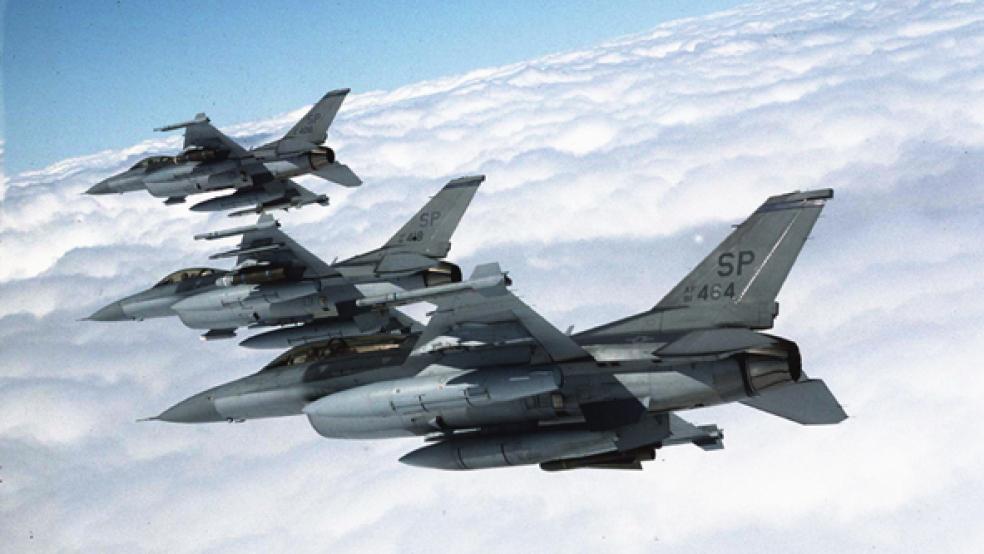The Pentagon needs to keep better tabs on its purchases, or more tax dollars will go down the drain.
Within the past few years, Boeing International—the Defense Department’s second largest contractor-- has been getting away with significantly overcharging the DoD–by millions of dollars, according to a new report from the DoD’s inspector general, obtained in advance by Bloomberg.
In one instance, Boeing, which received more than $30 billion in contracts last year, overcharged the Army by as much as $16.6 million for new helicopter parts, while actually using refurbished equipment from old aircrafts. No one seemed to notice.
And that’s not all.
RELATED: PENTAGON’S FAILURE TO AUDIT CONTRACTS WASTES BILLIONS
That same order included about $2.6 million worth of helicopter engine transmission parts that the Army didn’t even need. Instead, Boeing was allowed to keep them for another job “even though the Army paid for” the items, the audit found.
In another instance, Boeing overbilled the Defense Logistics Agency by $13.7 million for spare machine parts, including charging $2,286 a piece for aluminum bearing sleeves that should have only cost $10 each.
And in 2011, an audit found that Boeing overcharged the Army by $13 million, including charging $644 a piece for plastic motor gear that was purchased by another agency for just $12.50.
DoD’s inspector general blamed the department for wasting money by not having better oversight over its contracts.
Bridget Serchak, a spokeswoman for the IG, told Bloomberg that the Army paid Boeing
for parts “that were proposed but never installed,” and “is paying for additional parts that they do not need and may not use.”
Henry Kleinknecht, the inspector general’s former director for pricing and logistics, managed Boeing audits before he retired last year, and told Bloomberg that the Army didn’t have proper oversight procedure for managing its contracts, which led to the overpayments. He said the people handling the contracts lack “the technical expertise in a lot of these complex areas to go in and figure out what the problems are.”
“The bottom line is that using reworked parts rather than new parts increased Boeing’s profit,” Serchak said.
RELATED: PENTAGON MOCKS SEQUESTER WITH NEW MILLIONS WASTED
But Boeing, which reported $22 billion in sales in the second quarter of the year, disagreed with the IG’s findings. And said it was in compliance with the contract.
“We believe we were fully compliant with all government contract policies …and we provided evidence of that to the IG throughout this audit,” Boeing spokesman Damien Mills said in a statement.
The IG didn’t recommend that the Army seeks refunds for the contracts, since the Army didn’t properly examine the “kinds and quantities” of the products it ordered before the contracts were signed.
The Senate Homeland Security and Government Affairs Committee is planning to hold a hearing later this year to examine the Pentagon’s contract problems and “other opportunities to curb wasteful spending within the department.






